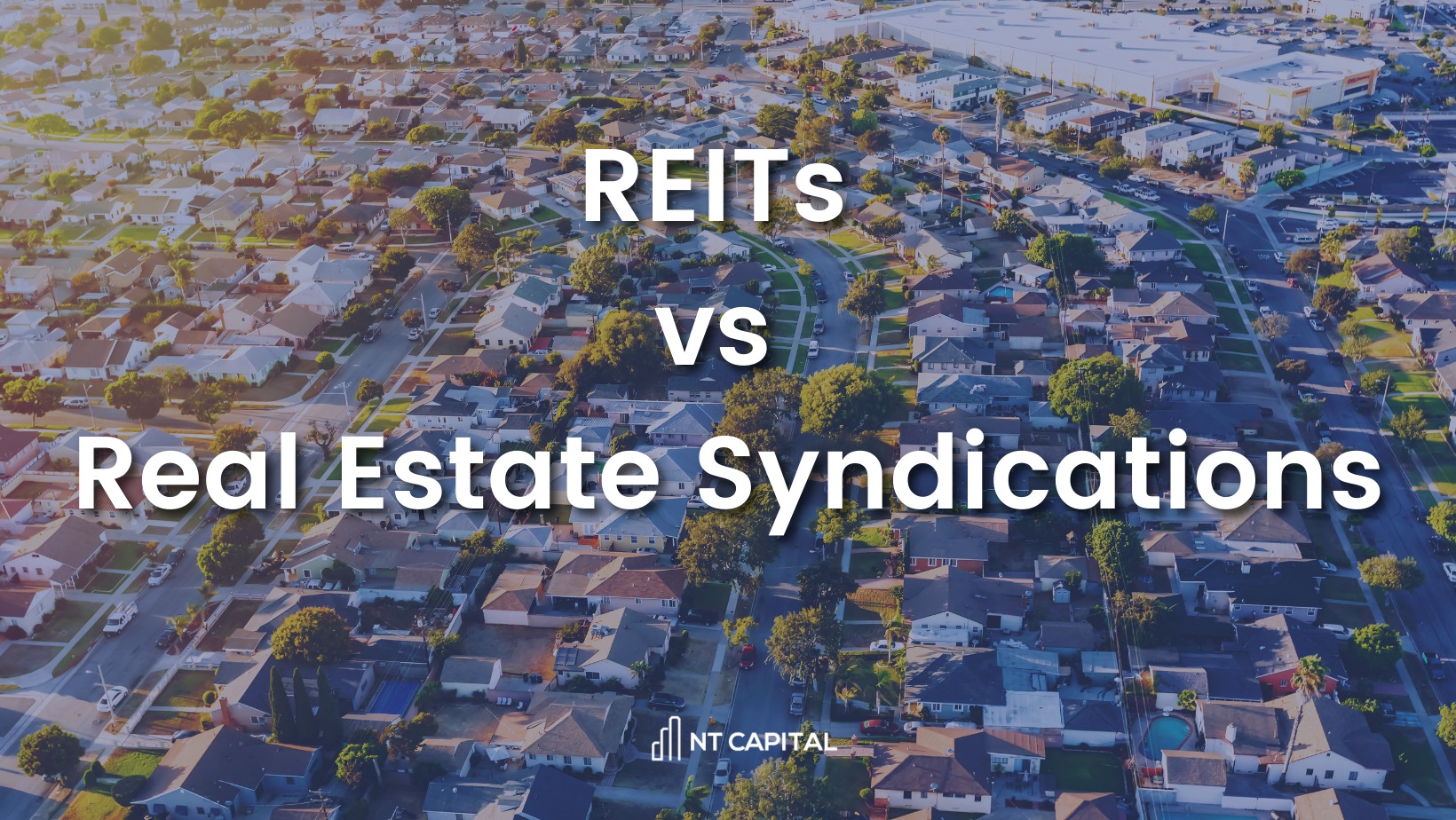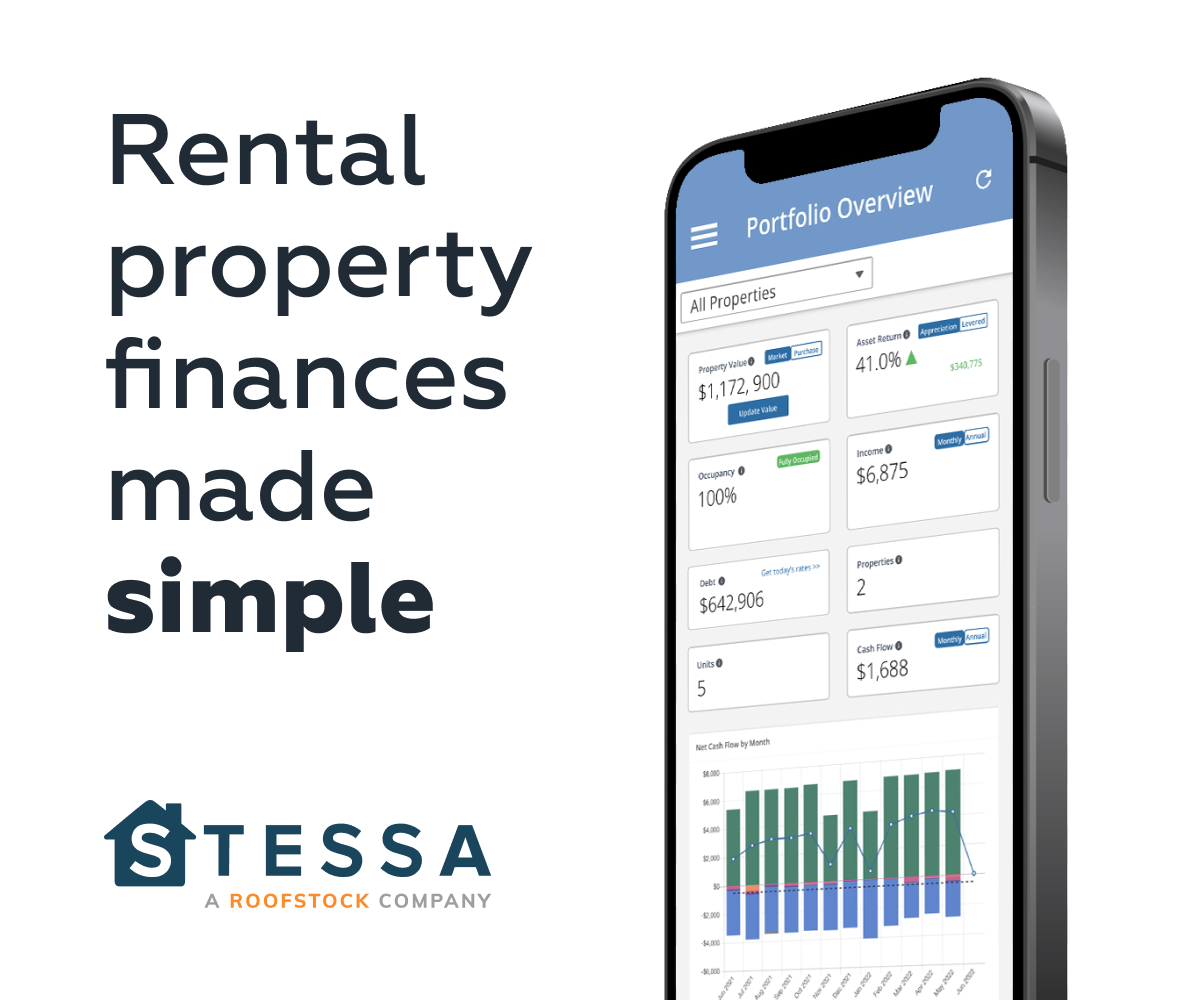
REITs vs Real Estate Syndications
Many investors are seeking exposure to the real estate market but do not want the hassle of starting their own real estate business. Those investors want to participate in the real estate market, but as passively as possible. Two options are typically weighed against one another, REITs and Real Estate Syndications.
In this blog post we’ll compare three key differentiating factors between REITs and Real Estate Syndications, from the standpoint of the passive investor.
Cash Flow
Let’s start with the number one goal of most real estate investors: Cash Flow
Cash flow is the real estate equivalent of a dividend. REITs are legally required to distribute at least 90% of their taxable income to shareholders in the form of dividends, which are typically non-qualified dividends, taxed at ordinary income rates. That is the case for most REITs, making the tax treatment of their cash flows highly tax-disadvantaged for high income professionals.
In contrast, real estate syndications pass through cash flow from underlying properties directly to investors after expenses and debt service have been paid. Typically, cash flows from syndications will come to investors as passive income, which may also be taxed at one’s ordinary income rate. But experienced investors don’t stop there!
Passive income can be offset by passive losses, which we’ll get to later. When done properly this can allow investors to receive cash flows each year, but completely offset the tax liability with depreciation. This is a complex strategy. If you’re considering implementing such a strategy, you must work with an experienced CPA or tax planner to map out your plans!
Depreciation
One key difference between real estate syndications and REITs has to do with depreciation: REIT investors cannot receive depreciation. Real estate syndications, on the other hand, typically use LLCs as their corporate entities. LLCs are pass-through entities, meaning incomes and losses are passed through to shareholders (or “members”), rather than creating tax liability for the LLCs themselves.
That pass-through setup enables syndication sponsors to pass depreciation (or paper losses) to investors. Don’t just assume that as a passive investor you’ll get depreciation, though! Be sure to review your documents and discuss depreciation with the sponsor and with your CPA.
Liquidity
Real estate syndications are significantly less liquid than publicly traded REITs. Investors can sell their REIT shares into the public markets at any time; however, REITs also have significantly less price stability than the commercial real estate they purchase. This is because liquidity leads to market fluctuations – panic selling! Conversely, syndications can offer more stability specifically because syndication investments and the underlying real estate properties are slower, more complex transactions.
Liquidity should not be underestimated when evaluating an investment opportunity. All else being equal, most people would prefer to have access to their money whenever they need it without penalty.
Parting thoughts
It is important to note that syndication investments are certainly not the right choice for many investors. Syndication investment minimums tend to start at much higher dollar figures than REITs – syndication minimums often start at $50,000 or $100,000. Whereas a single share of publicly traded REITs may be well under $100.
Furthermore, evaluating syndications requires significantly more investment sophistication and business knowledge than publicly traded securities. Lastly, not all investors are prepared for the illiquidity of syndications. If you’re considering investing in a syndication, that’s great – just understand what you’re getting into.
While both real estate Syndication vs Reits have pros and cons, I believe real estate syndications provide important benefits when it comes to more direct exposure to real estate, opportunity for passive income, stability, depreciation benefits, and ability to invest with highly experienced sponsorship teams.






